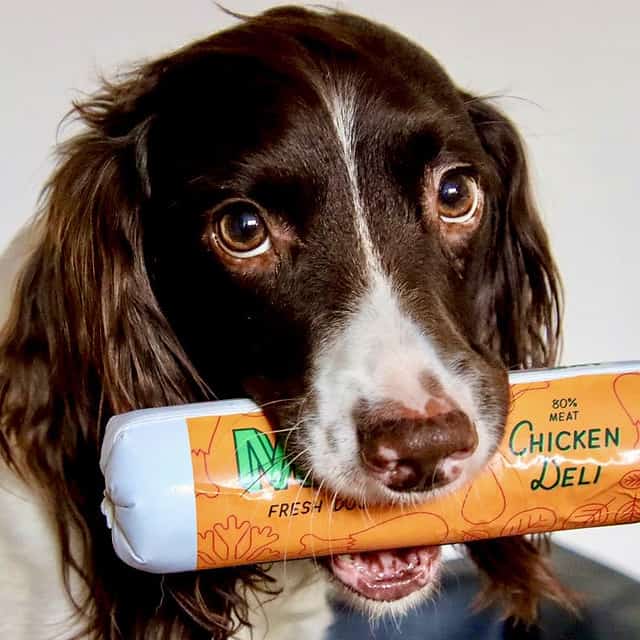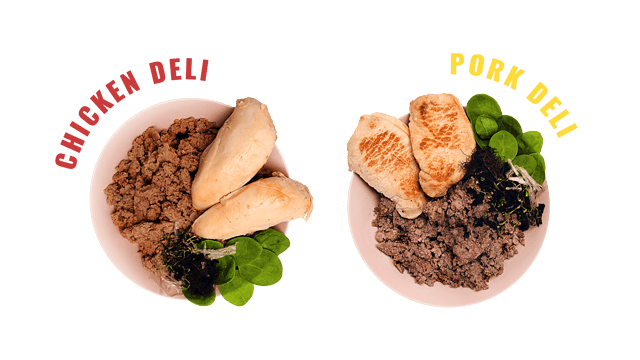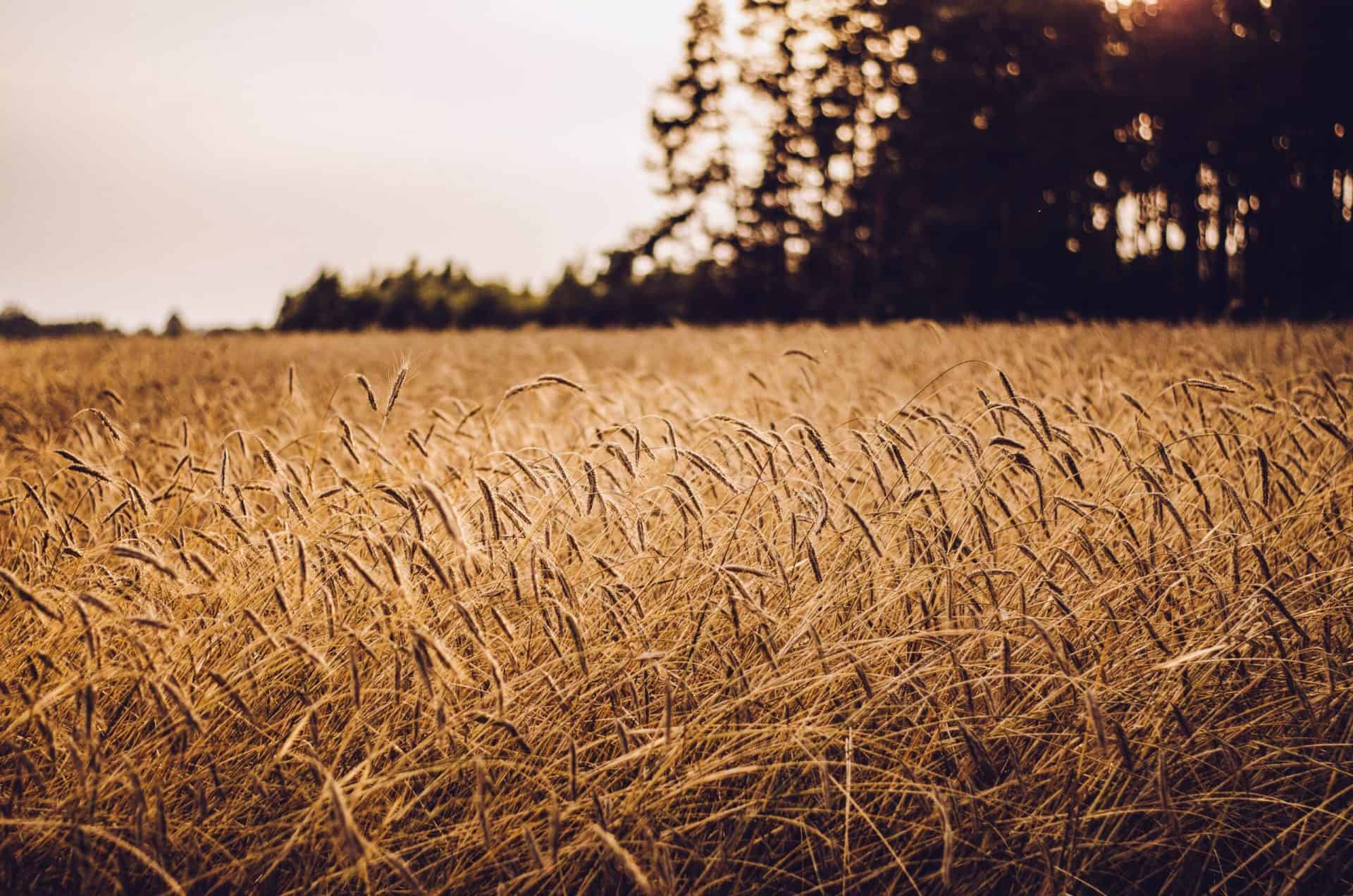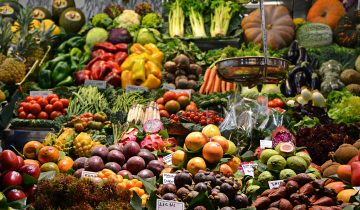Grain-free dog food has become more and more popular in recent years, but what are the benefits of grain-free dog food? Does it make any difference to the dogs, and are all grains bad for dogs?
You may be sitting with the question “ why grain-free dog food ?” And that is a good question that we will discuss here.
Our four-legged best friends are descended from wolves, and for thousands of years they have been tamed from being the forest’s great fearsome predators to being our sweet and faithful companion. But nonetheless, dogs are still carnivorous predators. This means that a dog’s digestive system is designed to break down meat, fat and protein. For dogs, it is therefore more difficult to break down grains than meat, as grains contain a large amount of carbohydrates, which dogs are naturally not used to being able to break down.
There are several benefits when it comes to why grain-free dog food is good for your dog. Among other things, dog food without grains is allergy-friendly, it is better for digestion, and can give your dog more energy and better breath.
4 benefits of grain-free dog food
Dog food with cereal products is basically not bad for your dog. Cereals contain fiber, vitamins and minerals, all of which can be good for your dog’s body. However, getting your dog too much grain in his food can lead to stomach problems. Here, grain-free dog food can be a supplement, so that your dog only gets grain through treats and snacks, and thus avoids getting too many grain products in his diet.
At the same time, grain-free dog food may be a necessity for your dog if it has allergies, such as a gluten allergy. Dog food without grain products has several benefits. Among other things, grain-free dog food is allergy-friendly, it is better for digestion, and can give your dog more energy and better breath. Veterinarians only recommend grain-free dog food if your dog has allergies. Otherwise, dog food with cereal products is fine for your dog – alternatively you can use gluten-free cereals such as rice.
# 1 Allergy friendly
Allergies among dogs are becoming more and more common, and just like with humans, dogs can also have food allergies. Dogs can be allergic to, among other things, gluten and protein. If you want to know more about food for dogs with allergies, you can read our article on allergy-friendly dog food .
One of the many benefits of grain-free dog food is that it is hypoallergenic. Dog food without grain products is built in such a way that your dog gets everything it is designed to eat from nature. MÆT ‘s grain-free products consist primarily of meat, which is supplemented with a few vegetables. The meat gives the dogs the amount of protein they need, while the vegetables ensure that they also get the vitamins and minerals they need.
# 2 A healthier digestive and intestinal system
In addition to grain-free dog food being allergy-friendly, it is also good for your dog’s digestive and intestinal system, as its stomach and intestines are allowed to process food that it is naturally created to be able to digest. Stomach and digestive problems are not abnormal among dogs, and if you find that your dog has difficulty with his digestive process, you can read our article on the five most common dog stomach problems , where you can find tips on how to solve them.
If you start by giving your dog grain-free dog food from a puppy, you will be able to prevent several of the food allergies that dogs can suffer from. It is especially smaller dogs, such as Maltese, Cocker Spaniels and Brussels Griffons, that are prone to allergies, but all dogs can develop allergies during their lifetime. With dog food without grains, you can prevent against this, and it may therefore be a good idea to give your dog grain-free dog food from the beginning. If, on the other hand, you are already giving your dog grainy dog food, but want to switch to grain-free dog food, then it is recommended that you make the transition as gentle as possible. It allows your dog’s digestive system to get used to the new diet in a good and considerate way.

# 3 Better breath
Does your dog have bad breath? Many dogs can have bad breath and it can sometimes be very bad. If you find that your dog has a strong and bad breath, then it may be due to several things. Among other things, it can be something medical, but it can also be due to the diet, so if you are tired of your dog’s bad breath, there may be solutions that you can manage yourself at home.
When dogs get the distinctive bad dog breath, it is due to some bacteria living in its mouth and stomach. The odor from these bacteria is released every time your dog breathes or moans, resulting in the bad odor.
Poor diet can be one of the reasons why dogs get bad breath, and therefore a simple solution may be to replace the food with something else. Poor quality dog food is often the culprit as it contains additives which can lead to bad breath. A naturally composed diet without additives can be the solution to the problem. MÆT ‘s fresh dog food consists exclusively of natural ingredients that are healthy for your dog, as well as giving it the proteins and vitamins it needs.
If you want to try fresh dog food, which must also be grain-free, we recommend our grain- and gluten-free Chicken Deli and Pork Deli . Both products contain naturally composed ingredients consisting of either chicken or pork supplemented with vegetables.

# 4 Greater Energy
For us humans and dog owners, a healthy and varied diet is important for us to maintain the right energy level. The same goes for dogs. Our wagging friends need healthy and properly composed dog food in order to maintain their energy. Fresh and grain-free dog food is not only allergy-friendly, good for the stomach and a help against bad breath – it is also good for your dog’s energy level. This is because your dog’s digestive system gets the right and natural nutrition that it is naturally built to have. Grain-free dog food gives your dog a more stable blood sugar, as it does not get a large amount of empty carbohydrates, which are quickly converted into sugar and provide a quick energy boost.
Advantages and disadvantages of the cereals
Are all grains bad for your dog? There are differences in the different grains and just like in humans, there is a difference in how your dog’s digestive system can break down the different grains. Cereals are generally not bad for your dog, and dogs also need carbohydrates, which it can get through various grains. However, if your dog gets too much grain, it can cause stomach problems.
Wheat
Wheat is converted more quickly to sugar than many other grains. This means that if your dog gets food with a lot of wheat, his body will quickly convert this into sugar, which will give it a quick energy boost and unstable blood sugar level. Therefore, there may be benefits in feeding your dog other grains or potatoes so that it can have a stable blood sugar level throughout the day.
However, there are also benefits to wheat. Wheat contains wheat bran, which can be good for preventing constipation. However, be aware of allergic reactions from your dog if you feed it wheat. Some dogs may be allergic to wheat, which can cause them intestinal problems.
Oats
Oats are not converted to sugar as quickly as wheat, resulting in a more stable blood sugar. Oats also have a higher content of fiber than other grains, which gives your dog a longer feeling of satiety. Likewise, these fibers can be good if your dog has a bad stomach. The fibers bind the liquid and can thus help your dog against a normal stool.
Rice
If dogs have a bad stomach, it is often recommended that they get a gentle diet consisting of either boiled potatoes or long-cooked white rice with boiled chicken or other lean meat. The rice and the cooked meat can be soothing to your dog’s gastrointestinal system, while the fiber and starch from the rice can give your dog a better stool.
Corn
Corn can be well digested by dogs, whether raw, cooked or grilled. They contain vitamins, fiber and minerals that are good for your dog. Be aware that corn contains more calories than many other vegetables, so if your dog is on a diet, it is better to give your dog other vegetables, such as spinach or carrots.
Also, be aware that you must not give your dog canned corn as they contain sugar and salt due to the layer. Likewise, do not give your dog corn cobs as the flask itself cannot be digested, which can give your dog an ugly constipation. Likewise, the flask may be stuck in your dog’s throat. In addition, you should be aware that corn contains more calories than many other vegetables, so if your dog is on a diet, it is better to give your dog other vegetables, such as spinach or carrots.
Grain-free or gluten-free dog food
Gluten allergy among dogs is rarely seen, but several small dog breeds can be hypersensitive to grainy food. If your dog has a gluten allergy, then you should only go for gluten-free dog food. You should be aware that there are dog foods that are sold as grain-free dog food but which still contain gluten as an additive. MÆT s Chicken Deli and Pork Deli cater both as gluten-free dog food and grain-free dog food. Then it is easy for you who want to give your dog gluten-free, allergy-friendly and grain-free dog food in the same meal.

frequently asked questions – grain-free dog food
Can a dog get dog food with grain?
Yes. Basically, grain is not dangerous for a dog. Cereals contain fiber, vitamins and minerals that are good for a dog’s digestive system.
Why grain-free dog food?
Grain-free dog food is allergy-friendly and can prevent or reduce allergies in dogs. Grain-free dog food also ensures that dogs do not get too much grain in their diet as it can give them stomach problems.
Read more about grain-free dog food
Try our grain-free dog food
Can Dogs Get Gluten Allergies?
Yes. Dogs, like humans, can get gluten allergies also called celiac disease. Be aware that not all grain-free dog food is gluten-free. Conversely, you can also buy cereal-free dog food without gluten. At MÆT , all dog food is gluten-free.




 No products in the cart.
No products in the cart.